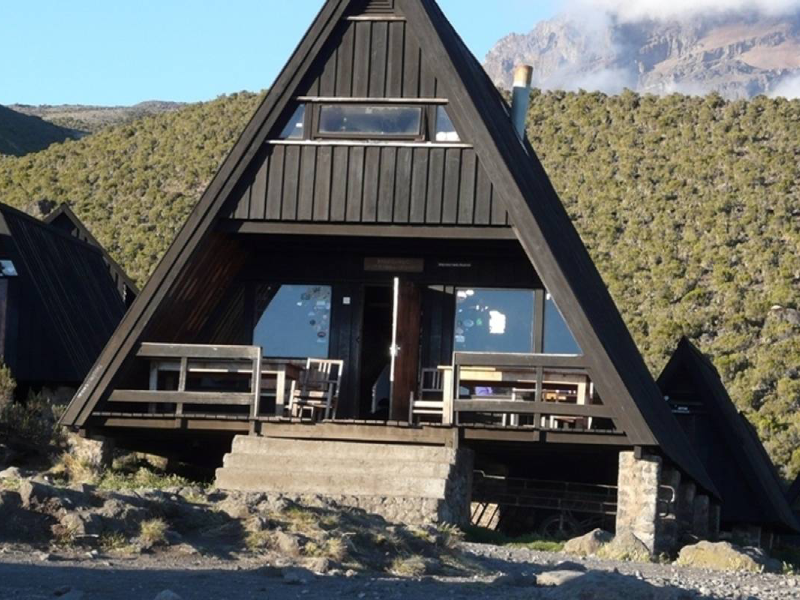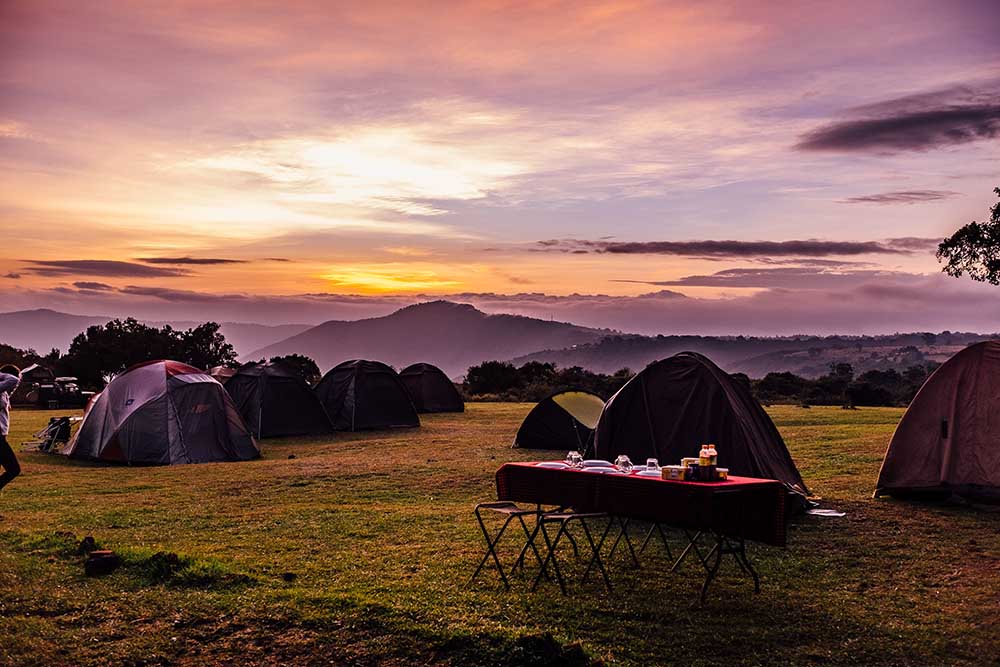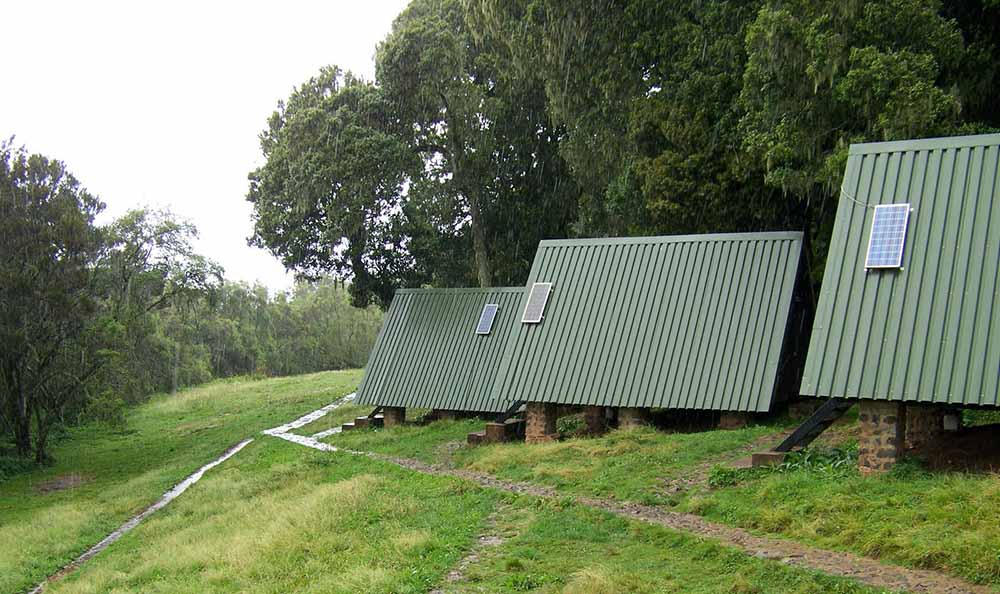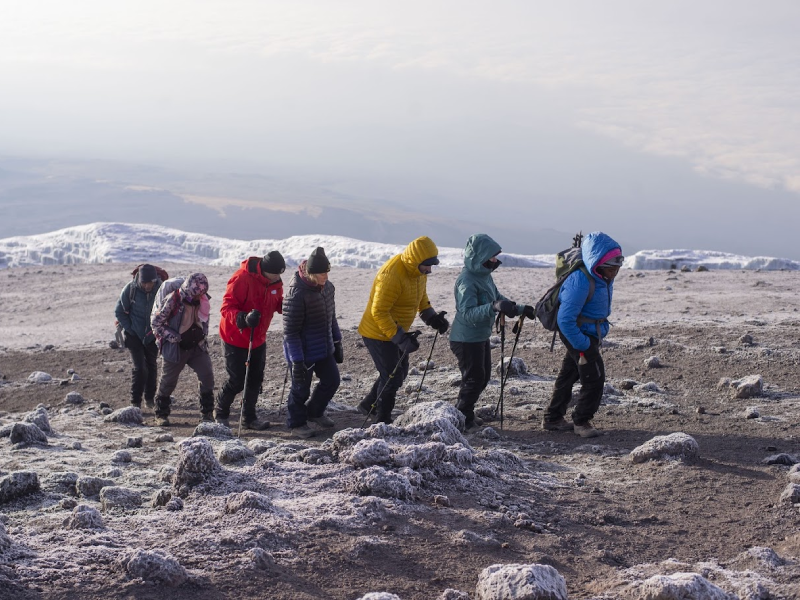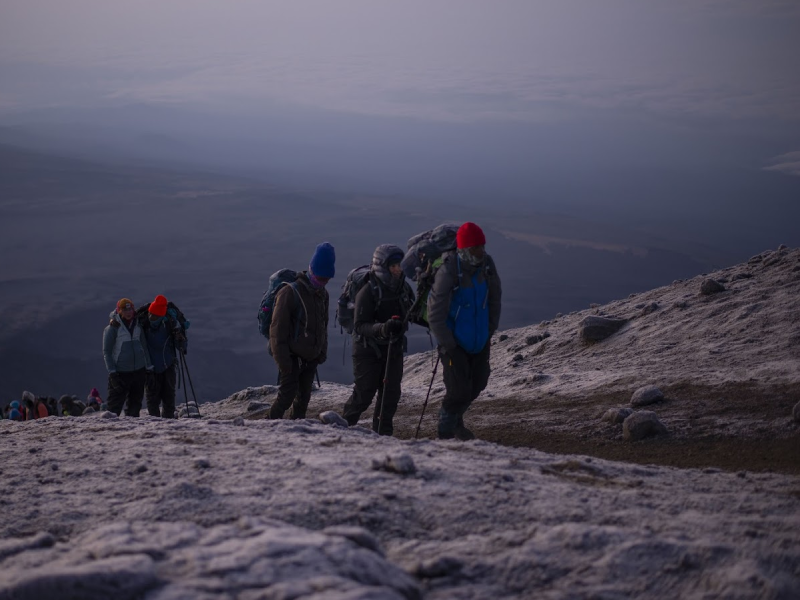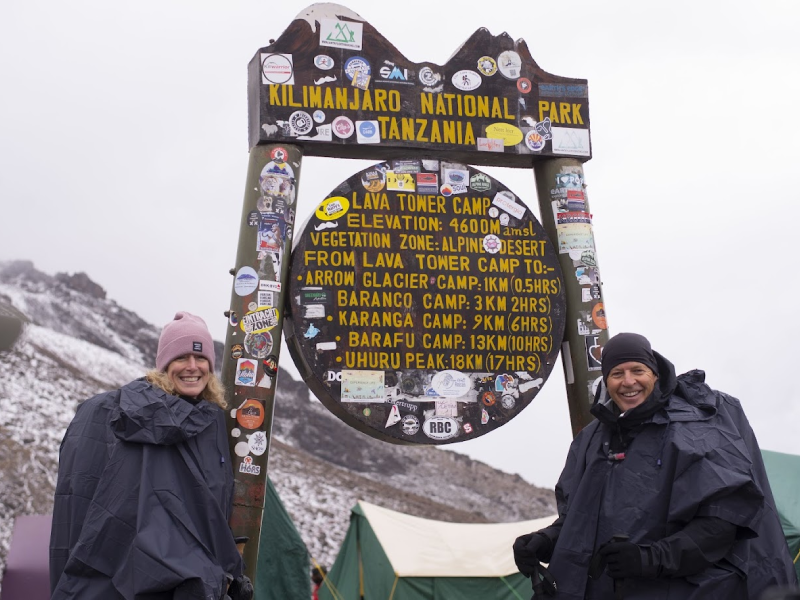
6 Days Kilimanjaro Climb - Machame Route
For those who only have six days to climb Kilimanjaro, the Machame route is the best choice. The Machame route exposes the climber to higher elevations quicker (day three) which kickstarts the body’s adaptation to altitude.
Day 1: Machame Gate (1790m) – Machame Camp (3010m)
After breakfast, you will be collected from Stella Maris Lodge and taken to the Kilimanjaro National Park – 1 hour drive. While your guide is registering, you can watch the mountain team preparing – it is always impressive ‘what’ and particularly ‘how’ everything is carried up the mountain. Once this is all packed up, your adventure will begin; after a few minutes you will be deep within the forest with ancient trees, ferns, mosses and black and white colobus monkeys frolicking in the treetops. After 5 – 6 hours you will reach – Machame Camp –situated just above the forest line at 3000m. Arriving here, the porters have already set up your tents and warm water for washing is ready. Breakfast, Lunch, Dinner.
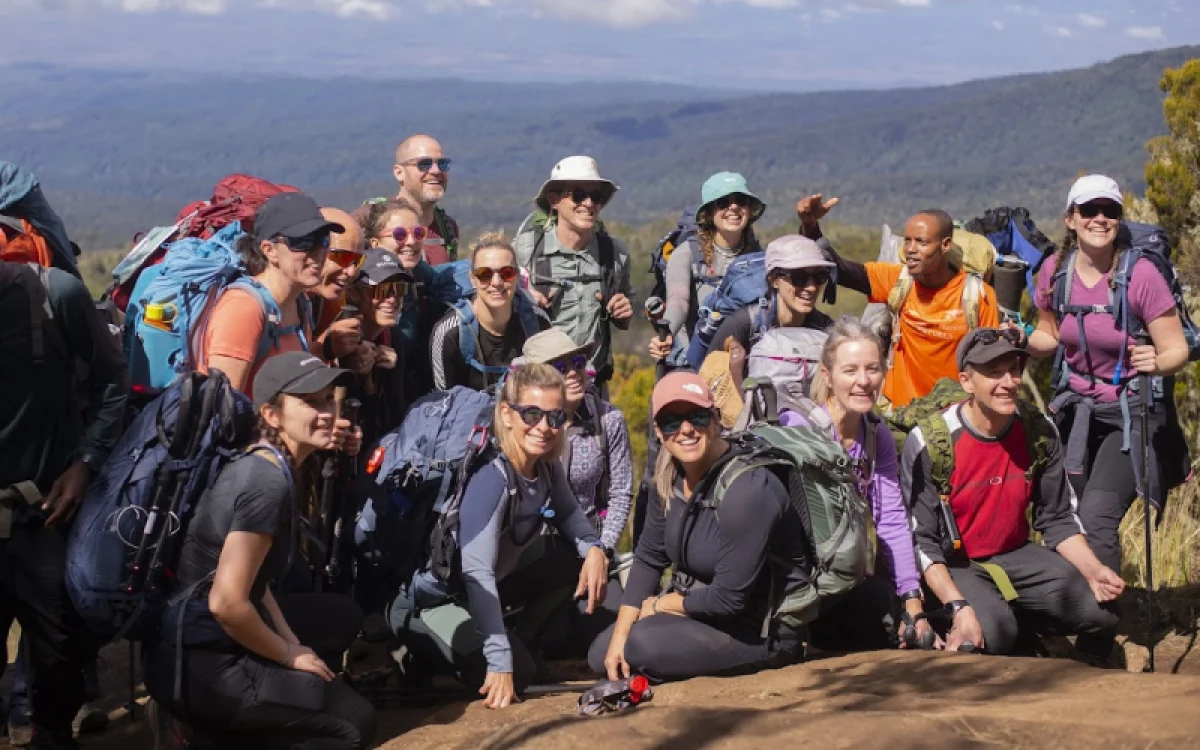
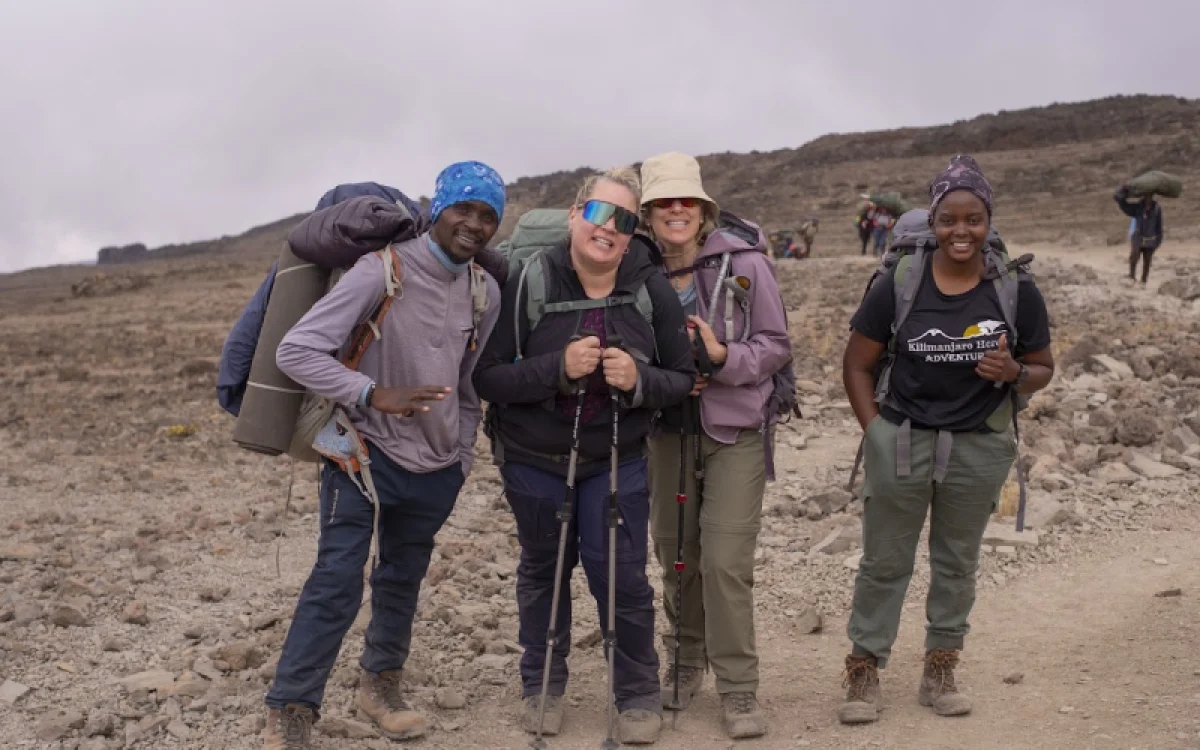
Day 2 Machame Camp (3010m) – Shira Camp (3845m)
After an early morning start, the path steepens and the vegetation changes into a moorland with shrubs such as hardy Ericas. Today’s stage is shorter than the previous day and by mid-afternoon, you will arrive at the campsite at the Shira Plateau. From the camp you will have breath-taking views of the mountain and evening light on the rock face and glacier of Kibo as the sun sets. Breakfast, Lunch, Dinner.
Day 3: Shira Camp (3845m) – Lava Tower Hut (4640m) – Barranco Camp (3960m)
Today will be a day for ups and downs. You will ascend almost 700m but descend again after reaching the imposing Lava Tower (4640m). This will help with acclimatisation as you will reach a height of over 4 500m. You will move through different vegetation zones. After reaching Lava Tower the path traverses Barranco Valley dotted with the weird-looking senecios. Barranco Camp is reached after 6 – 7 hours. Considered the most beautiful camp on the mountain, the camp is situated just below the imposing Barranco Wall. Rest and refuel tonight. Breakfast, Lunch, Dinner.
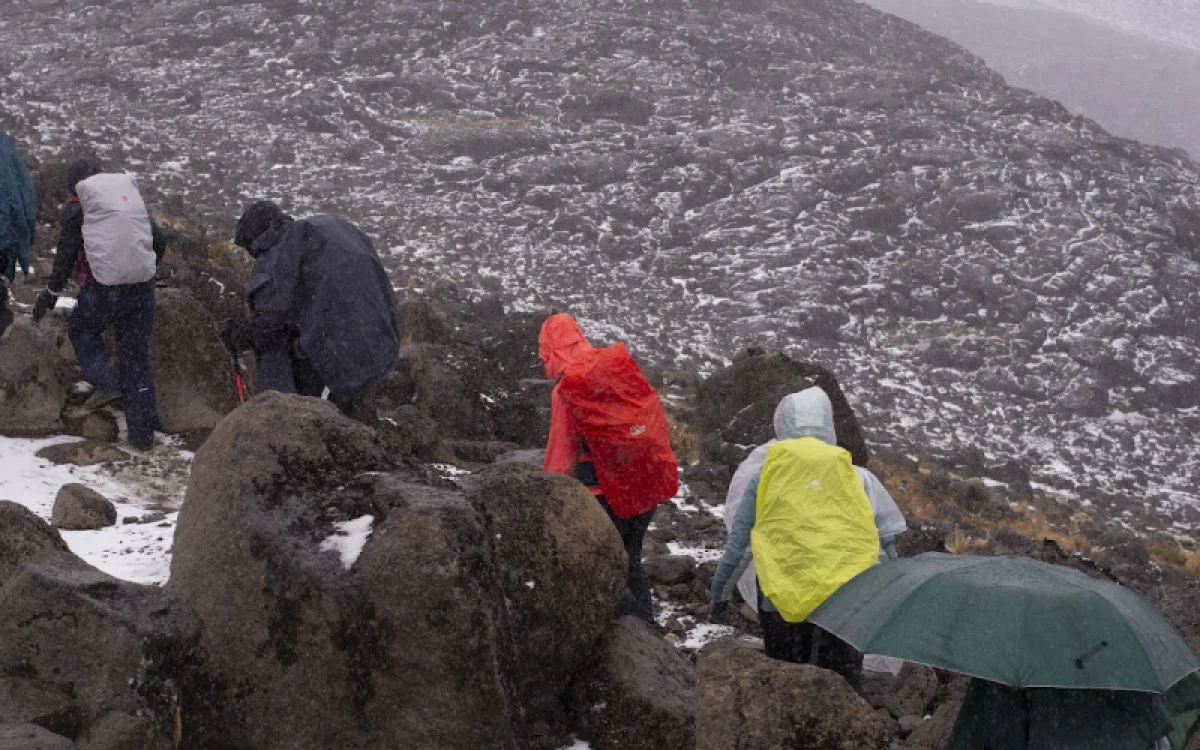
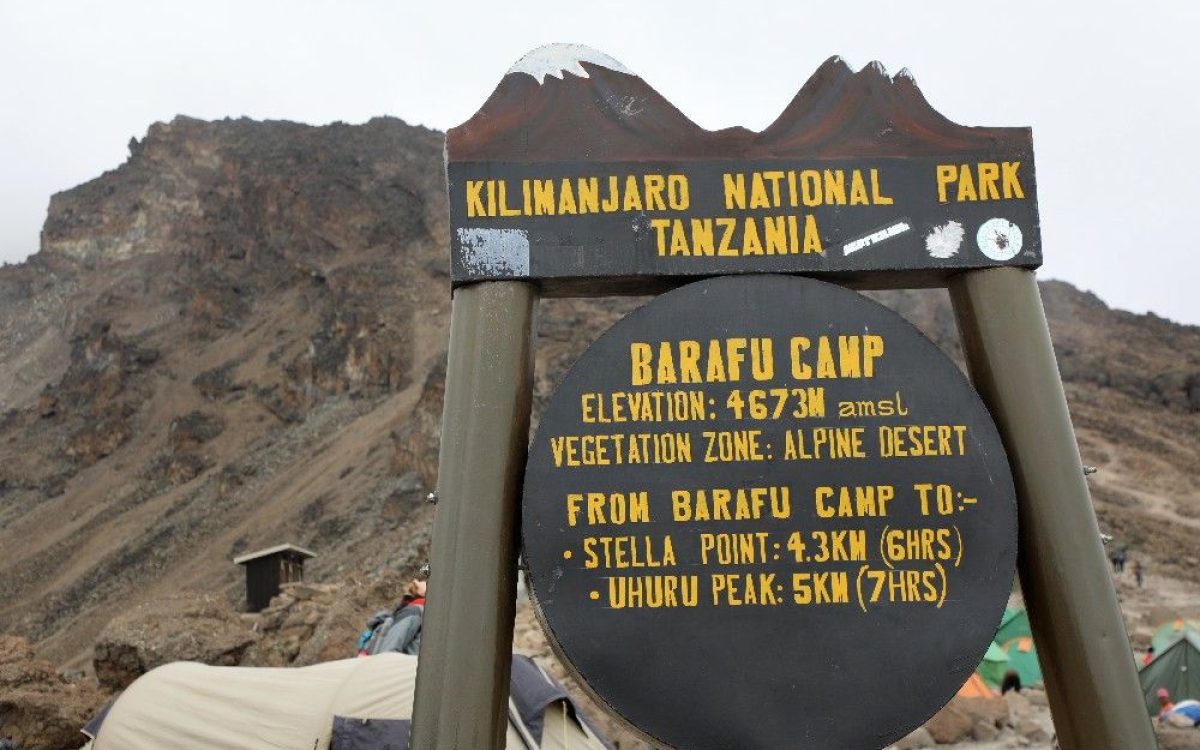
Day 4: Barranco Camp (3960m) – Barafu Camp (4640m)
The first section of today’s route is to scale the ‘Barranco Wall’. Use your hands and feet. Safety is paramount and you will be secured if necessary, but it looks more daunting than it actually is. The trail continues with many up and down sections, crossing a few streams, winding and climbing stopping for lunch in the Karanga Valley. After lunch there will be another 2 – 3 hours climb before you reach Barafu Camp (4640m). Tonight, drink a lot of fluids, try to eat and go to bed early to rest enough before tomorrow’s summit trek. Breakfast, Lunch, Dinner.
Day 5: Barafu Camp – Uhuru Peak (5895m) – Mweka Camp (3080m)
You will be woken in the midnight hours with a cup of tea and a biscuit. Dressed warmly and geared with a headlight and your daypack you will set off in the darkness. After 5 – 7 hours of ‘pole pole’, you will reach the rim of the crater, Stella Point. Another one to two hours of going slowly along the crater’s edge and you will arrive at the summit – Uhuru Peak (5895m). Looking down over the surrounding landscape below in the early morning light, will make you feel on top of the world. You have now reached the ‘Roof of Africa’. The descent should be easy but dusty, as the volcanic ash will now have defrosted. Returning on the same route you should arrive at Barafu Camp within a few hours where the porters are waiting with food and tea. Resting for an hour or two, you will continue down to reach Mweka Camp (3080m) for your overnight stay. Breakfast, Lunch, Dinner.
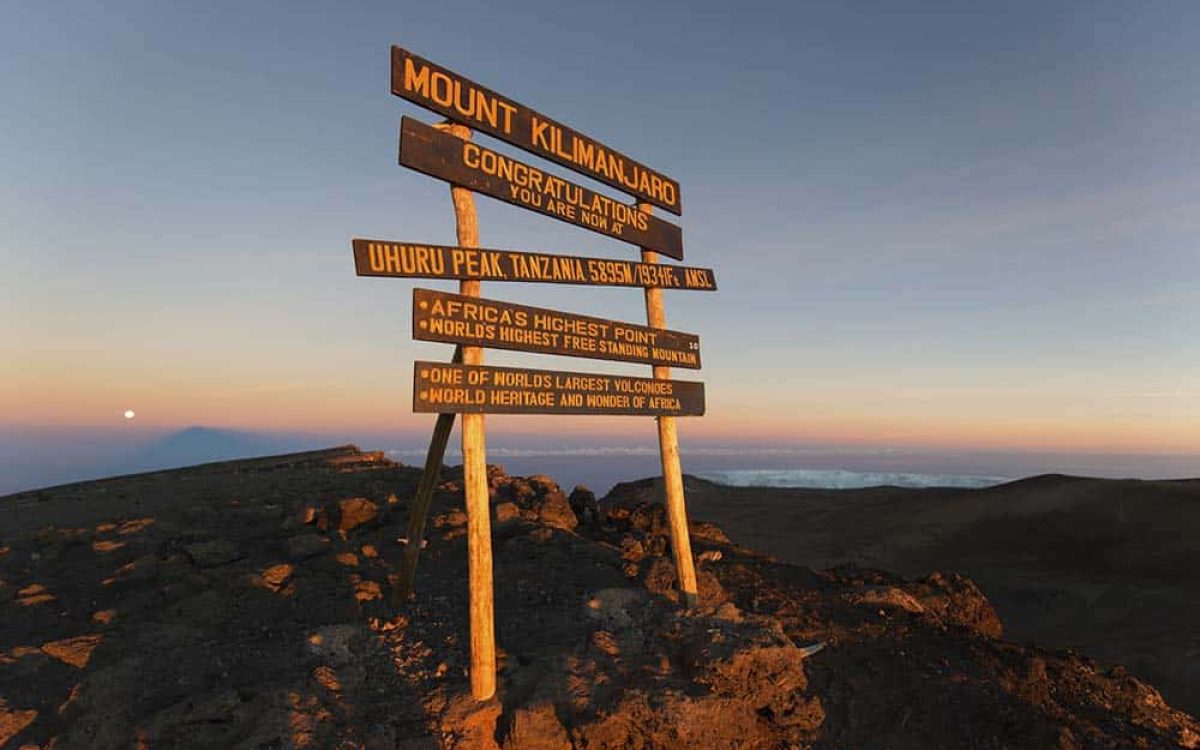
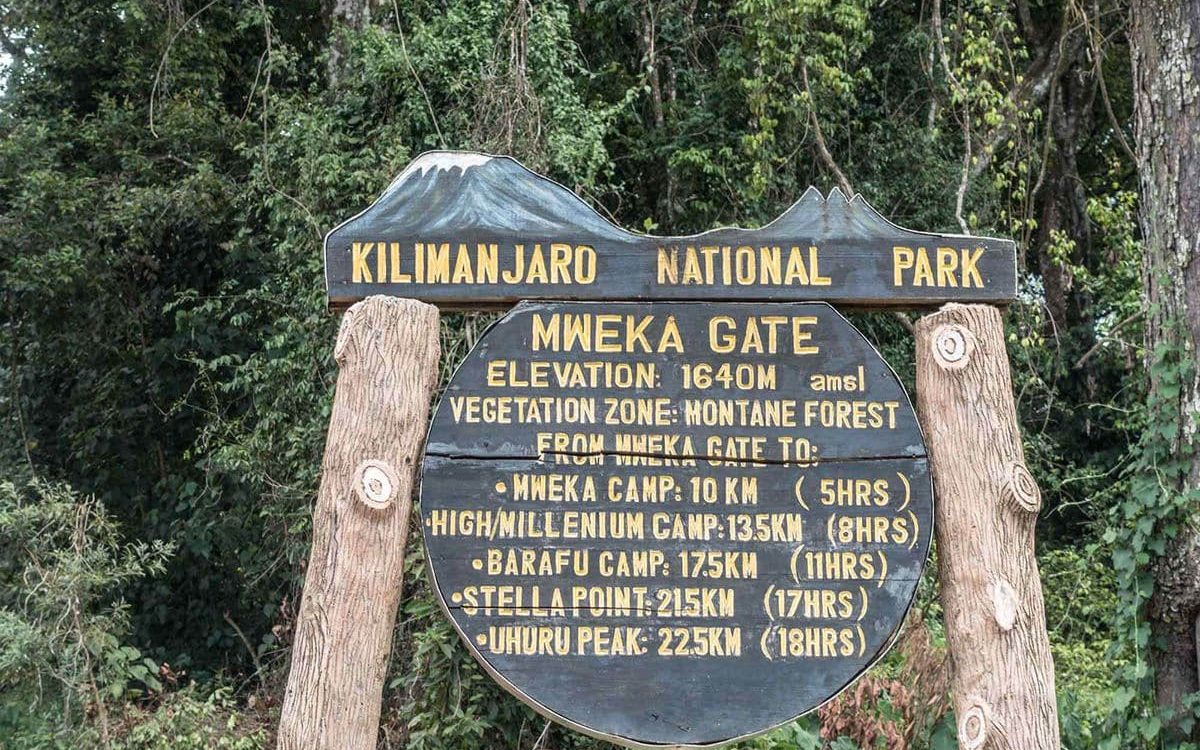
Day 6 Mweka Camp (3080m) – Mweka Gate (1630m) – Moshi
Last day on the mountain. After breakfast, the crew will celebrate your achievement with a traditional song as part of their farewell ceremony. You will present them with their tips. Setting off and descending into the moist green forest, it should take about three hours to reach the gate. Back to Stella Maris Lodge for hot shower and cold beers wait. There you can revive yourself and celebrate your achievement. Breakfast
What is included:
Airport transfers (to/from Kilimanjaro International Airport)
All park fees and mountain permits
Professional mountain guides, porters, and cook
Tents and camping gear (except sleeping bags, unless stated)
All meals and drinking water on the mountain
Accommodation before and after the climb (in Moshi or Arusha)
Rescue fees (for emergencies)
Fair wages for crew (as per KPAP standards)
What is excluded:
International flights
Tanzanian visa fees
Tips for guides, porters, and cook (expected but not included)
Personal trekking gear (sleeping bag, clothing, boots)
Travel insurance (mandatory for most operators)
Snacks, energy drinks, and bottled beverages
Extra hotel nights (before or after the trek, if needed)
Portable toilet (optional on some routes at extra cost)
